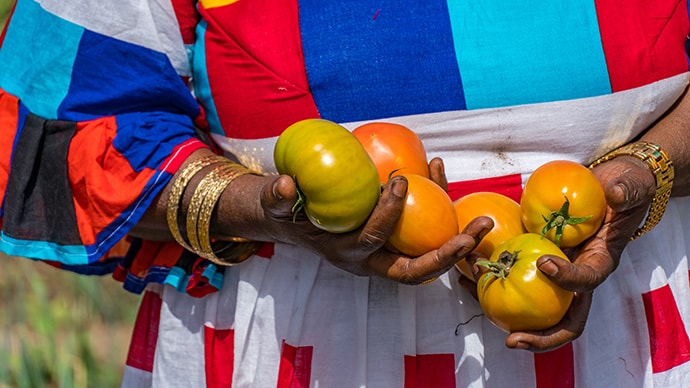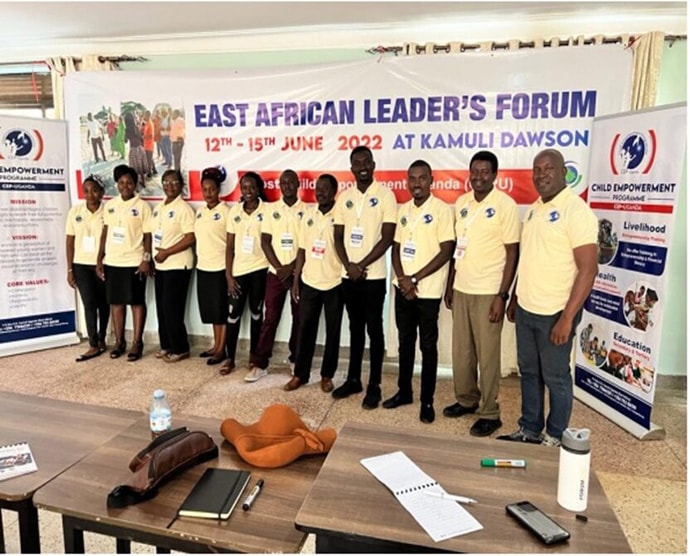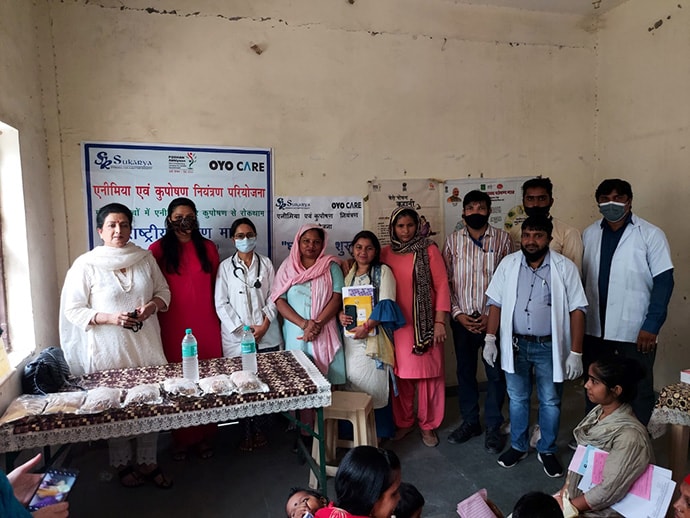Posted on October 18, 2022
By Esther Mwaura-Muiru, Landesa

A Senegalese farmer holds a cluster of tomatoes that she grew on her farm. In sub-Saharan Africa, women farmers account for 57 percent of the workforce in agriculture. Photo by Landesa/Nicole Tomita
Women farmers feed their communities and the world. From the paddy terraces of Asia to the maize fields of sub-Saharan Africa, the woman farmer tills, plants, waters, and harvests crops that provide food security and nutrition for millions.
Continue Reading
Posted on October 18, 2022

The EALF is an annual meeting of leaders from Pangea’s current and former grant partners in East Africa. The forum provides an opportunity to share experiences and expertise on a variety of issues related to running effective organizations. Below are some testimonials from the Forum’s participants.
Continue Reading
Posted on October 14, 2022
By Meera Satpathy, Founder and Chairperson, Sukarya

Meera Satpathy, the founder of Sukarya with nutritionists and health care professionals are seen at the celebration of Poshan Maah – the Nutrition Month, event where Sukarya intervenes with its CSR partners in the local slum communities of Sector 24, Nathpur Gurugram, Haryana. The aim is to improve the nutritional outcomes for children under 6 years of age and pregnant and lactating mothers. Photo: Sukarya
If we go by the UN’s Definition, food security means that all people, at all times, have physical, social, and economic access to sufficient, safe, and nutritious food that meets their food preferences and dietary needs for an active and healthy life.
It is also a well-known fact that Gender Inequality leads to and results from food insecurity. According to estimates, girls and women make up 60% of the world’s chronically hungry, and the world has made little progress in ensuring the equal right to food for women. In fact, at the global level, the gender gap in the prevalence of moderate or severe food insecurity grew even more significant in the year of the COVID-19 pandemic.
Continue Reading


